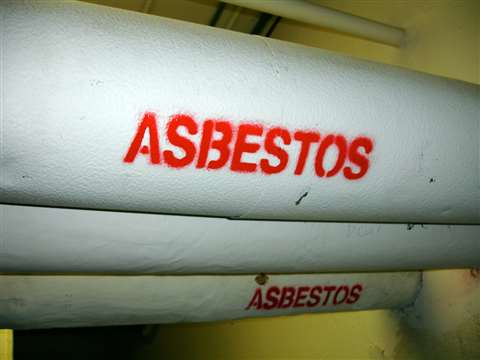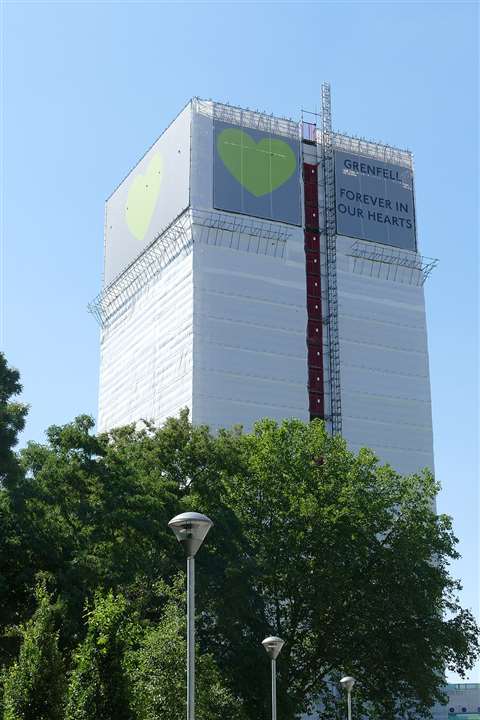What new and upcoming legislation could impact construction in Europe?
06 April 2023
 A generative AI image by AkuAku via AdobeStock - stock.adobe.com
A generative AI image by AkuAku via AdobeStock - stock.adobe.com
The regulatory landscape rarely stands still for long in construction. And changes in the law can often have repercussions for the way in which construction companies do business.
That’s why Construction Europe has rounded up some of the newest legislative changes across different markets. With the help of legal experts from risk and financial advisory firm Kroll and and law firm DWF, we examine what the changes are and what they could mean for construction businesses:
EU-wide
The European Commission is preparing to amend the Asbestos at Work Directive to further reduce the number of people dying from asbestos-related cancers in the European Union.
 Asbestos pipe lagging (Image: daryl_mitchell/Wikimedia Commons)
Asbestos pipe lagging (Image: daryl_mitchell/Wikimedia Commons)
It has proposed reducing the occupational exposure limit for asbestos to 10 times lower than its current value (from 0.1 fibres per cubic centimetre to 0.01 f/cm3.
The EC also plans to offer guidelines on implementation as well as an awareness campaign aimed at companies, workers, owners and public administrations.
However, the European Construction Industry Federation (FIEC) and the European Builders Confederation (EBC) oppose the plans in their current form.
They argue that a focus on lowering the occupational exposure limit value (OEL) is “not realistic” because construction companies would not be able to implement the requested limits.
They have called for a longer transition period of 4-5 years for the revision of the directive. Find out more in Construction Europe’s full article here.
France
Climate and Resilience Law
Part of the provisions of the Climate and Resilience Law will come into force on 1 July 2023, including article 101 which is related to greening, vegetation and solarisation of future buildings.
 A car park with solar PV panels mounted on solar shades (Image: Wikimedia Commons)
A car park with solar PV panels mounted on solar shades (Image: Wikimedia Commons)
The legislation will strengthen the greening requirement on certain new buildings and parking lots.
It lowers the threshold from which new buildings will have to integrate a renewable energy or greening system on 30% of their roof surface to 500 m². This rate was already provided by a law of 2019 and was maintained because of the complexity of greening works.
Similarly, the Climate and Resilience Law modifies the list of buildings subject to the solarisation obligation and greening of roofs or shades.
The greening requirement is extended to extension work and heavy renovation work, as well as to office buildings with a floor area of more than 1,000 m². As the structure of the building determines the weight that a roof can support, installation of solar panels or a green roof will need to be included in construction parameters.
Meanwhile, new outdoor parking lots accessible to the public or associated with buildings subject to the greening obligation with a footprint of more than 500 m², will have to green half of their surface.
Surface coverings, hydraulic arrangements or vegetated devices that promote permeability and infiltration of rainwater must also be developed on half of the concerned parking lots.
For constructions and extensions or heavy renovations of buildings or parts of buildings, the local mayor may choose not to apply all or part of the obligations. This choice will apply in case of technical, safety, eonomic, architectural or heritage constraints. These exemptions must be justified.
Bruno Richard, partner and construction law expert, DWF
Italy
Reform of the Public Procurement Code
The reform of the Italian Public Procurement Code is currently passing through Parliament. It is scheduled to come into force on 1 April 2023, with its provisions set to take effect from 1 July 2023 (although the latest rumours suggest that the code could come into force from 2024).
The key changes set to come in force are:
There will be new principles to be observed during the public evidence procedure.
Parties will be obliged to renegotiate contracts where “[…] extraordinary and unforeseeable circumstances occur that are outside the scope of normal risk, ordinary economic fluctuation and market risk and are such as to significantly alter the original balance of the contract […]”
The rule that previously prohibited cascade subcontracting will be scrapped, opening up the possibility that a subcontractor may, in turn, subcontract part of the services entrusted to him.
Another novelty concerns procedures below the European threshold: these follow the rules provided for direct awarding and for negotiated procedures in the so-called “Simplification Decree COVID-19” (Decree-Law No. 76/2020). The rotation principle is established according to which, in the event of a negotiated procedure, it is prohibited to proceed directly to the award of a contract to the outgoing contractor. In all sub-threshold contract awards, dilatory deadlines, both procedural and procedural in nature, are excluded.
The general contractor is reintroduced. With these contracts, the economic operator “is required to pursue an administrative result by means of the professional and specialized services provided, in exchange for a consideration determined in relation to the result obtained and the activity normally required to obtain it”.
Lidia Scantamburlo, partner and construction law expert, DWF
Poland
Amendment of the 1994 Building Law
An amendment to the Building Law, aimed at simplifying and digitizing the construction process in Poland, will come into force on 27 January 2023.
Currently all construction logs (i.e. documentation which collates information during the course of construction works) are maintained in hard paper copy.
However, upon entry into force of the amendment, construction logs may be kept in either hard copy paper format or in digital format in an electronic system known as ‘Elektroniczny Dziennik Budowy’ (translating in English as ‘Electronic Log Book’), which will be available on the website operated by Główny Inspektor Nadzoru Budowlanego (the General Construction Supervision Inspector).
Each electronic construction log will have its own individual number. Existing construction logs conducted to date in hard copy may be continued in digital format, but hard copy construction logs will continue to be available until 31 December 2029. Following this date, it will become mandatory for all construction logs to be stored electronically.
The amendment to the Building Law is expected to simplify and modernise the process for maintaining construction logs, which are crucial documents within the framework of the construction process in Poland.
Paweł Białobok, counsel (Real Estate), DWF
UK
The Building Safety Act 2022
While the Building Safety Act 2022 (the ‘Act’) became law last year, only limited provisions came into effect with the majority set to be implemented in 2023.
 Grenfell Tower (Image: Loz Pycock/Wikimedia Commons)
Grenfell Tower (Image: Loz Pycock/Wikimedia Commons)
The Act is a response to the Grenfell Tower tragedy and is arguably the most significant piece of legislation to affect the UK’s built environment industry in decades. It aims to make buildings safer and deliver improvements across the entire construction sector, including by imposing a more rigorous regulatory regime for ‘higher-risk’ buildings.
This year should see the coming into effect of requirements for stages two and three of the ‘Gateway Regime’ which was introduced by the Act to ensure that building safety risks are considered at each gateway of every higher-risk building project.
Similarly, other subordination legislation is expected including regulations to provide clarification on the ‘golden thread’ of vital information to be maintained throughout the lifecycle of every ‘higher-risk’ building and legislation to define a ‘higher-risk building’ under the Act.
Fire Safety (England) Regulations 2022
The Fire Safety (England) Regulations 2022 came into force on 23 January 2023 and apply to multi-occupied residential buildings in England only. The Regulations bring about significant change to existing fire safety law.
There are various new and stringent obligations and requirements for ‘responsible persons’ from providing fire safety instructions to residents of residential buildings, to requirements to send information on external walls to Local Fire and Rescue.
Responsible persons who fail to comply can face fines and/or imprisonment depending on the circumstances.
Kate Monaghan, senior associate and construction law expert, DWF
Application of the Limitation Act 1980 to the right to adjudicate “at any time”
The Technology & Construction Court (“TCC”) decided that the Limitation Act 1980 applies to the statutory right to adjudicate “at any time” under Section 108 (2) (a) of the Construction Act.
In a recent case in the UK, a claimant claimed payment almost 8 years after it completed the works, and subsequently commenced adjudication proceedings. The Defendant argued the payment was time-barred, but the adjudicator said there was nothing in the governing regulations that placed a time limit on when payment claims could be submitted and that the Limitation Act had no bearing on the validity of the payment claim. In this case, the TCC refused to enforce the adjudicator’s decision and held that Claimant’s claim for payment was time-barred under Section 5 of the Limitation Act 1980.
The impact of this ruling is that the right to adjudicate “at any time” is not an open-ended right and is subject to statutory limitation, and adjudicators should consider arguments that claims referred to them have been submitted out of time. Adjudicators must address limitation as a substantive defence in any relevant claim referred to them. Alternatively, a limitation defence may come within the scope of matters which the court could determine during enforcement proceedings, resulting in the court refusing to enforce the adjudicator’s decision because the sums awarded were barred by limitation.
Gary Peters, senior director in the Expert Services practice at Kroll
STAY CONNECTED



Receive the information you need when you need it through our world-leading magazines, newsletters and daily briefings.
CONNECT WITH THE TEAM








